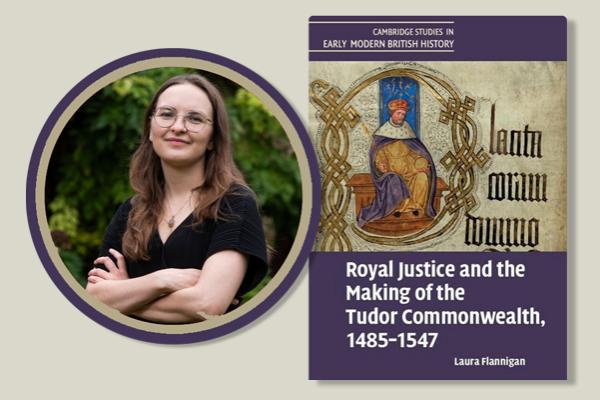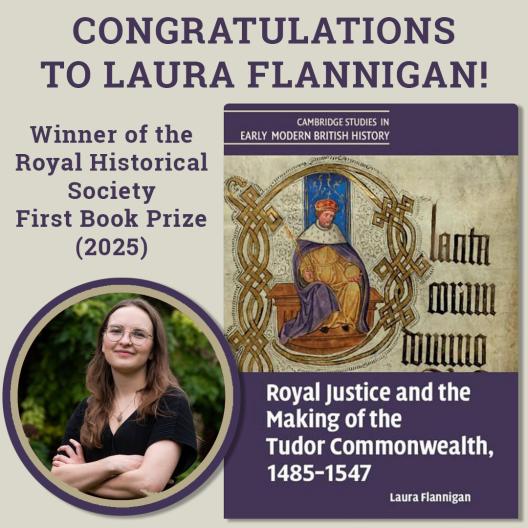Congratulations to Laura Flannigan!

Congratulations to Dr. Laura Flannigan on receiving the Royal Historical Society First Book Prize for 2025 for her book, Royal Justice and the Making of the Tudor Commonwealth, 1485-1547, (Cambridge University Press, 2023).
RHS Judge Mark Knights stated the following:
This is an impressive, conceptually adept and ambitiously argued book. It is grounded in extraordinarily deep archival research on a previously neglected judicial court that was established in the late fifteenth century.
Drawing on thousands of case files, the book explores what constituted the evolving and ambiguous categories of royal justice and poverty. The court has been called the poor man’s court and Flannigan shows that there is much merit in this description, whilst also showing that poverty was something of a relative term.
The work gives fresh insights into state formation in the early Tudor state by examining the responsiveness of this itinerant court to petitions from litigants and hence gives fascinating social depth to the emergence and development of government and legal culture. It also argues that the people ‘invited the state in’ much earlier than has often been thought: ‘justice’, Flannigan argues, was created collaboratively.
The rich quantitative data yields intriguing vignettes that give wonderful colour to institutional history – for example, we hear at one point about a number of defendants who ate the seals of the writs issued against them in an unsuccessful bid to avoid answering them! The book is clearly written and structured, as well as being cleverly and convincingly argued.
From the publisher's website:
The dawn of the Tudor regime is one of most recognizable periods of English history. Yet the focus on its monarchs' private lives and ministers' constitutional reforms creates the impression that this age's major developments were isolated to halls of power, far removed from the wider populace. This book presents a more holistic vision of politics and society in late medieval and early modern England. Delving into the rich but little-studied archive of the royal Court of Requests, it reconstructs collaborations between sovereigns and subjects on the formulation of an important governmental ideal: justice. Examining the institutional and social dimensions of this point of contact, this study places ordinary people, their knowledge and demands at the heart of a judicial revolution unfolding within the governments of Henry VII and Henry VIII. Yet it also demonstrates that directing extraordinary royal justice into ordinary procedures created as many problems as it solved.

